St. Francis of Assisi Weekly Reflections
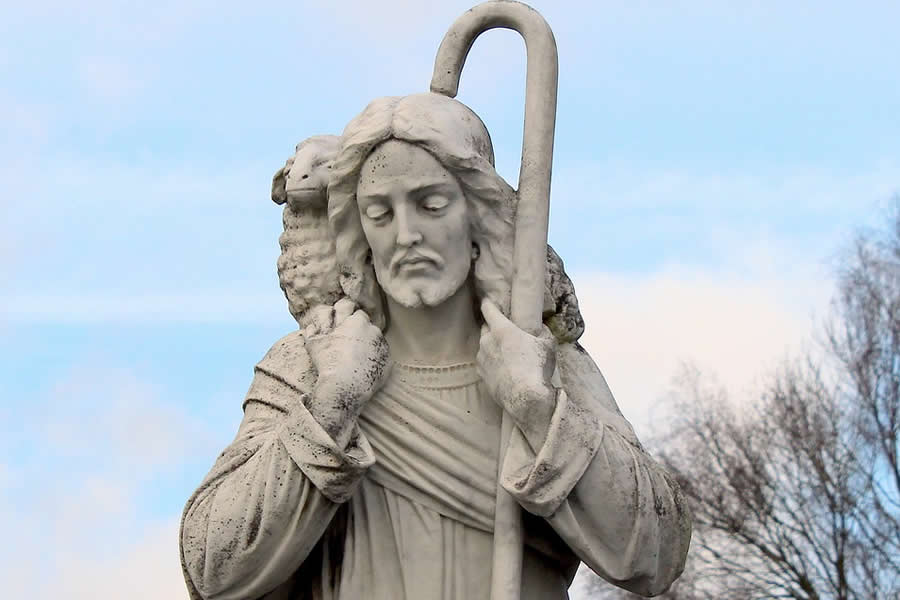
Be Merciful as God is Merciful
02-24-2019Weekly ReflectionWe Celebrate Worship Resource, Vol. 44, No. 1Jesus challenges us again this week. It is not enough for his disciples to be blessed when they are persecuted; now he tells them they must turn the other cheek. They must give the clothes off their back—not to the poor and needy, but to the very person who has already stolen their cloak. This kind of attitude is radical, preposterous. It goes beyond even the magnanimity David showed in sparing Saul’s life even though Saul was ready to kill him. In David’s age, in Jesus’ time, in our day, society tells us it is appropriate to retaliate against those who hurt you. It is difficult to resist the urge, let alone to turn around and be generous—to give your other cheek , your possessions, your forgiveness, your love—to those who hate you. But this is what we are called to do. Be merciful, as God is merciful. Jesus isn’t just teaching here. He is revealing himself and his mission. His mission is to love, in fact, to save those who steal, who curse, who injure, who hate. Sinners. Us. He is revealing our mission as well. We are called, after all, to “bear the image of the heavenly one” (1 Corinthians 15:49). We are called to be Christ.
How can you show mercy to those who have hurt you?
READ MORE
Blessed are You who are Poor
02-17-2019Weekly ReflectionWe Celebrate Worship Resource, Vol. 44, No. 1In Christ, the world is transformed and we are called to be transformed along with it. Luke’s version of the Beatitudes, which we hear today, is more direct than Matthew’s. More difficult, as well. It is not the poor in spirit who inherit the kingdom of God, but the actual poor. It is not those who hunger for righteousness who will be satisfied, but the plain old hungry. As if that weren’t enough, Luke, unlike Matthew, also includes the flip side: “Woe to you who are rich...woe to you who are filled now” (Luke 6:24-25). Basically, the Kingdom of God reverses your current place in society. As Christians we are paradoxical people. In baptism, we die with Christ. Because we have died with Christ, we receive the promise of eternal life. As Paul points out, we trust that Christ has been raised so that we may be raised as well. To borrow Jeremiah’s image, we are the tree planted beside the waters of baptism—the waters that bring plenty out of poverty, fullness out of hunger, joy out of mourning, and life out of death.
If your current place in society were reversed, where would you be now?
READ MORE
How is God Calling You?
02-10-2019Weekly ReflectionWe Celebrate Worship Resource, Vol. 44, No. 1What in the world does she see in him? We ask incredulously when the object of a friend’s interest seems unworthy. One may ask the same of God regarding the imperfect people who become prophets or disciples. Why would God choose Isaiah, a man who admits to being unclean, and worse, doomed, for such was the fate of those who had seen God? Why would Jesus choose Peter, impetuous, stubborn Peter, who admits to being a sinful man, foreshadowing his eventual denial of Jesus? Yet God chooses both and both end up playing major roles in the history of the church. So too does Paul, who calls himself unworthy because he had persecuted Christians prior to his conversion. All three have an unexpected encounter with the Lord. We hear of two today. Both Isaiah and Peter receive a sign and an invitation. A seraph symbolically burns away the sin from Isaiah’s lips. Peter’s net, empty all night, fills with fish. Thought unsure of their worthiness, each accepts the call. Paul recognizes how this can happen, for it happened to him. It is not their own virtue but the grace of God that made them worthy. And so they respond, “Here I am,” and “left everything and followed” (Isaiah 6:8, Luke 5:11).
How is God calling you? Can you recognize God’s grace?
READ MORE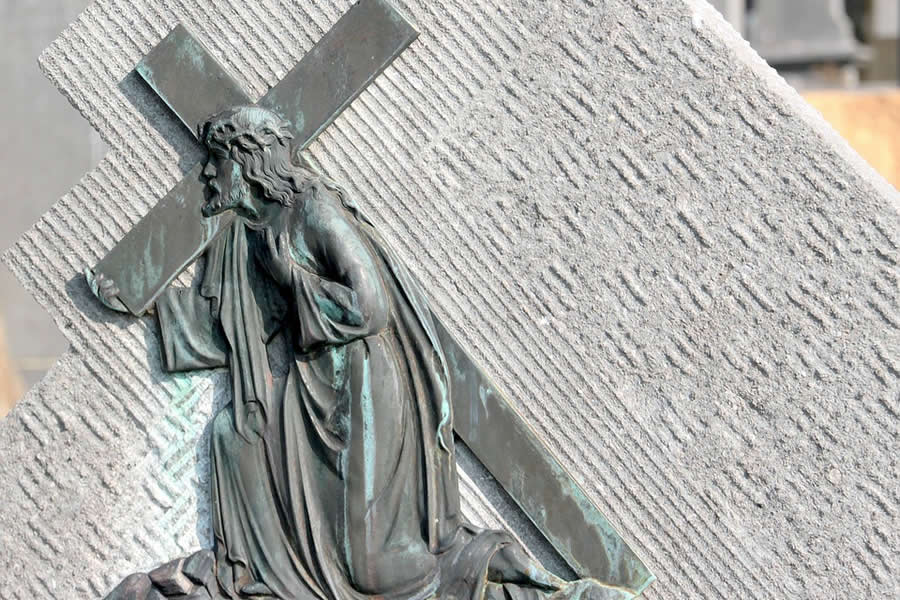
Love Bears All Things
02-03-2019Weekly ReflectionWe Celebrate Worship Resource, Vol. 44, No. 1It is the fate of the prophet to be rejected. A prophet challenges those who think that they are doing fine. They do not want to hear that they really are not. Jeremiah told the people of Judah that they must repent of their infidelity or God would destroy the temple. They responded by threatening to put him to death. But Jeremiah was able to bear this, for he knew God had called him. After all, God had warned him from the start: “Gird your loins...They will fight against you” (Jeremiah 1:17, 19). Jesus faces similar opposition in the Gospel. He upended his neighbors’ expectations, first by revealing that the hometown boy is a prophet and secondly by pointing out that prophets often show favor to outsiders over their own people. Rather than welcoming the universality of his message, they reject him and drive him out of town. Jesus was able to bear all this and more. “(Love) bears all things,” Saint Paul writes the Corinthians (13:7). Indeed, it is out of love, love for God and love for the people they served, that Jeremiah and Jesus were able to bear all things.
How does love enable you to bear all things?
READ MORE
Today this Scripture Passage is Fulfilled
01-27-2019Weekly ReflectionWe Celebrate Worship Resource, Vol. 44, No. 1How are your New Year’s resolutions going? It’s been nearly a month now. Have you been faithful to them? Did you make any in the first place? Are you ready to weep now, as the assembly in the first reading did, because you’ve fallen short or you find them too difficult? New Year’s day is an opportunity to change our habits. Ezra offered an opportunity to the people of Jerusalem by reading to them from the law. They had returned after generations in exile, so living according to the law new to them. It was an opportunity to use guidance from God to live justly and virtuously, but it may have been overwhelming because it was new to them. Ezra had to encourage them to rejoice. Centuries later, the passage Jesus found in the synagogue provided a lot to be joyful about: glad tidings for the poor, liberty to captives, sight to the blind, freedom to the oppressed. What was new in this case was revealed when he told them, “Today this Scripture passage is fulfilled in your hearing” (Luke 4:21). Now Jesus’ ministry had begun. Jesus gave them—and gives us—a new opportunity, a new beginning, a new year, in fact, “a year acceptable to the Lord” (Luke 4:19).
How can you make 2019 a year acceptable to the Lord?
READ MORE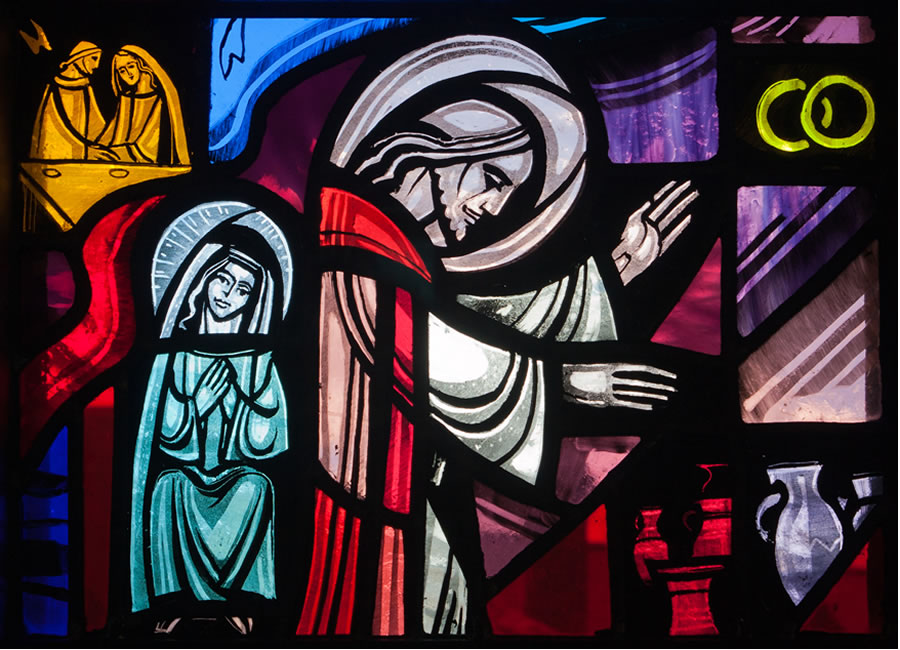
Fill the Jars with Water
01-20-2019Weekly ReflectionWe Celebrate Worship Resource, Vol. 44, No. 1Changing water into wine at the wedding at Cana is registered as Jesus’ first miracle, but John does not refer to these acts as miracles. He calls them “signs,” for they are performed in order to reveal God’s presence in human history. What does this sign reveal? Let’s look at the first reading for a clue. Isaiah used wedding imagery (“as a bridegroom rejoices in his bride”) and the metaphor of a marriage (“makes your land his spouse”) to describe God’s relationship to humanity (Isaiah 62:4, 5). God and humanity are united as in marriage. A covenant, a bond, has been established. In the Gospel, Jesus transforms water, which guests use to celebrate the wedding (for ceremonial washings), into wine, which guests use to celebrate the wedding. We will see wine again when Jesus’ hour truly comes: at the Last Supper, where it becomes his blood, and on the cross, where he drinks fully from the cup he cannot let pass, the cup of salvation. Jesus is actually the bridegroom, sent by God to humanity, which is the bride. Today and every Sunday, we come together to celebrate this bond and to drink the wine, the good wine, from the cup of salvation.
If the Church is the bride of Christ, how is the Mass like a wedding?
READ MORE
The Transformative Power of the Holy Spirit is Within You
01-13-2019Weekly ReflectionWe Celebrate Worship Resource, Vol. 44, No. 1The Holy Spirit has the power to transform the world and our lives in it. No matter which readings are chosen for today’s liturgy, we witness God’s power to transform. Isaiah, writing while the Israelites were living in exile, foresees a time when “every valley shall be filled in, every mountain and hill shall be made low,” transforming the world around them (Isaiah 40:4). Later, he says God’s chosen one will “bring forth justice to the nations,...open the eyes of the blind,...bring out prisoners from confinement,” transforming the lives of those in need (Isaiah 42:1, 7). Peter speaks in the house of Cornelius, the first Gentile convert. “God shows no partiality,” Peter says, transforming the outreach of the nascent Christian community (Acts 10:34). Paul writes to Titus that through Baptism and the Holy Spirit, we “become heirs in hope of eternal life,” transforming what happens after we die (Titus 3:7). In the Gospel, John promises that Jesus would baptize “with the Holy Spirit and fire,” transforming their lives (Luke 3:16). Indeed, if we have been baptized, we have the transformative power of the Holy Spirit within us.
How will you use that power to transform the world around you?
READ MORE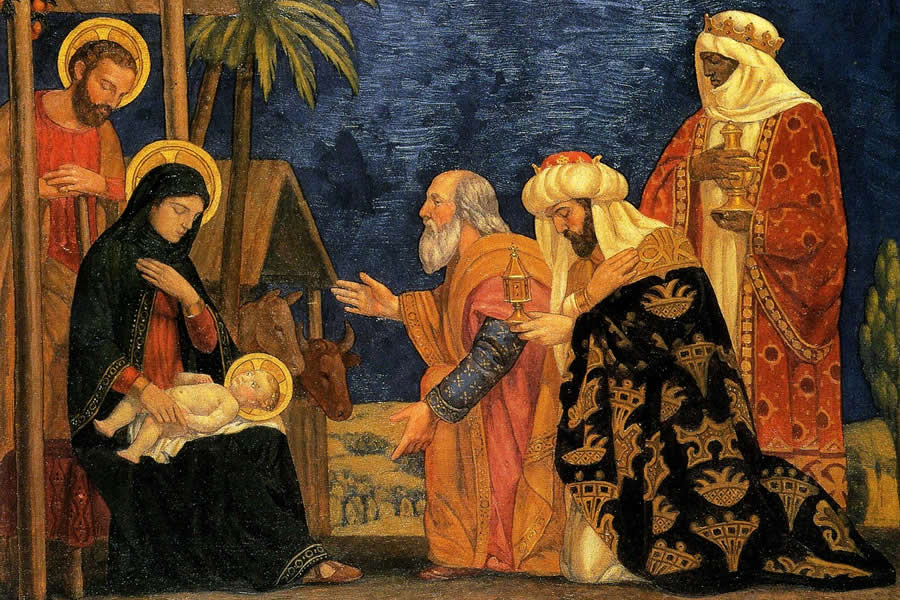
Rise Up in Splendour: Your Light Has Come
01-06-2019Weekly ReflectionWe Celebrate Worship Resource, Vol. 43, No. 3Wonder upon wonders, ever more wondrous. The readings today are like that, revealing greater and greater wonders as they go. The excitement is evident from the start of Isaiah exhorts, “Rise up in splendor, Jerusalem! Your light has come, the glory of the Lord shines upon you” (Isaiah 60:1). Jerusalem is portrayed as a beacon for all nations, as certainly it wanted to be at the time, welcoming its people from exile. In the second reading, we hear that “the mystery was make known...that the Gentiles are coheirs, members of the same body” (Ephesians 3:3, 6). This was truly Saint Paul’s guiding mission—to bring Christ to all people. There are no foreigners in Christ. In the Gospel, the magi receive more than one epiphany as they follow a new star, which ancients believed appeared at the time of a ruler’s birth. First, “overjoyed at seeing the star,” they recognized the kin in the baby Jesus (Matthew 2:10). Then they realized that Herod should not be told, giving the Holy Family an opportunity to escape. From the light of Jerusalem to the star over Bethlehem, the glory of the Lord shines forth.
Where can you see the light in the world and in your life today?
READ MORE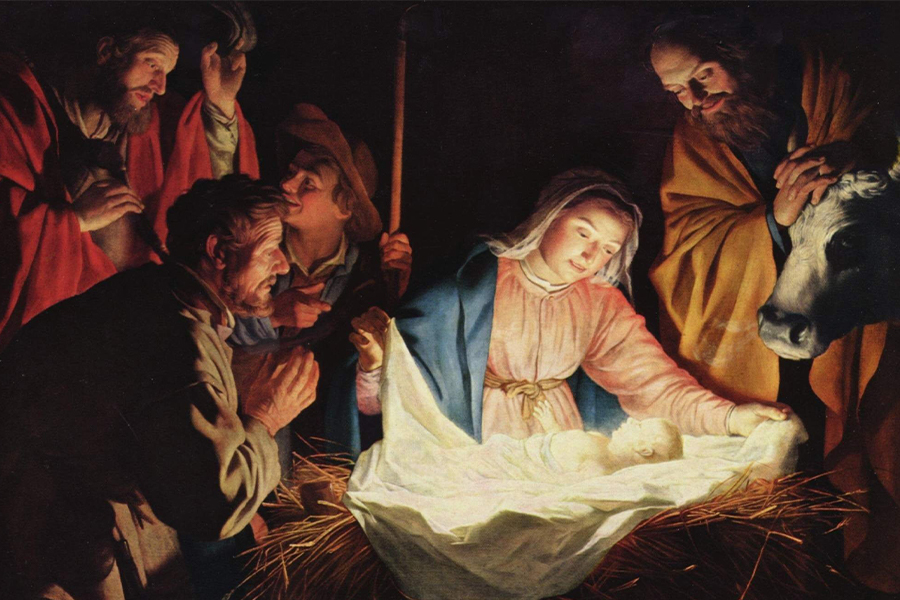
The Holy Family - Jesus, Mary, and Joseph
12-30-2018Weekly ReflectionWe Celebrate Worship Resource, Vol. 43, No. 3Twelve is an awkward age. An adolescent feels grown up in some ways, but is still immature in many others. The Gospel of today offers a glimpse into Jesus’ life at this age. As a devout Jewish family, Joseph and Mary make their annual pilgrimage to the temple in Jerusalem. Jesus obediently accompanies them. But in the temple, in his “Father’s house,” he is sidetracked. He stays behind to engage with the teachers and priests. When his parents finally find him, Mary tells him how worried they were and asks why he stayed behind. Jesus explains why he stayed in the temple all along. Though they do not understand his response, Mary and Joseph do not criticize or punish their son. Though he likely wanted to continue to debate with the scholars in his Father’s house, Jesus chose to obey and return with them to Nazareth. The family is able to resolve this awkward and potentially disagreeable situation by respecting each other and showing each other care and concern. To use Saint Paul’s words, they have put on “heartfelt compassion, kindness, humility, gentleness, and patience, bearing with one another and forgiving one another” (Colossians 3:12-13). They have “put on love, that is, the bond of perfection” (3:14).
How can the Holy Family be a model for your family?
READ MORE
O Little Town of Bethlehem
12-23-2018Weekly ReflectionWe Celebrate Worship Resource, Vol. 43, No. 3Too small. Too young. Too immature. God has a habit of choosing people whom others find wanting. Micah tells of an entire town, Bethlehem, that was judged “too small to be among the clans of Judah” (Micah 5:1). Though it was “O little town of Bethlehem,” God chose it for the birthplace of our Lord. After all, it was also the birthplace of David, immature himself, the youngest of Jesse’s sons, overlooked by his own father. But he became king and from his line was born the Savior of the world. No observer in Judah would have guessed that Mary and Elizabeth—one young and a virgin, the other old and thought to be barren—would be chosen to bear the Son of God and his herald. But Mary and Elizabeth accepted their roles immediately and recognized God’s work in each other. “Blessed are you among women,” Elizabeth immediately greets Mary, “and blessed is the fruit of your womb” (Luke 1:42). Blessed indeed, for as Hebrews says, “we have been consecrated through the offering of the body of Jesus Christ once for all” (Hebrews 10:10). Truly, “now his greatness shall reach to the ends of the earth” (Micah 5:3).
As we approach Christmas, can you find God’s grace in someone you’ve overlooked?
READ MORE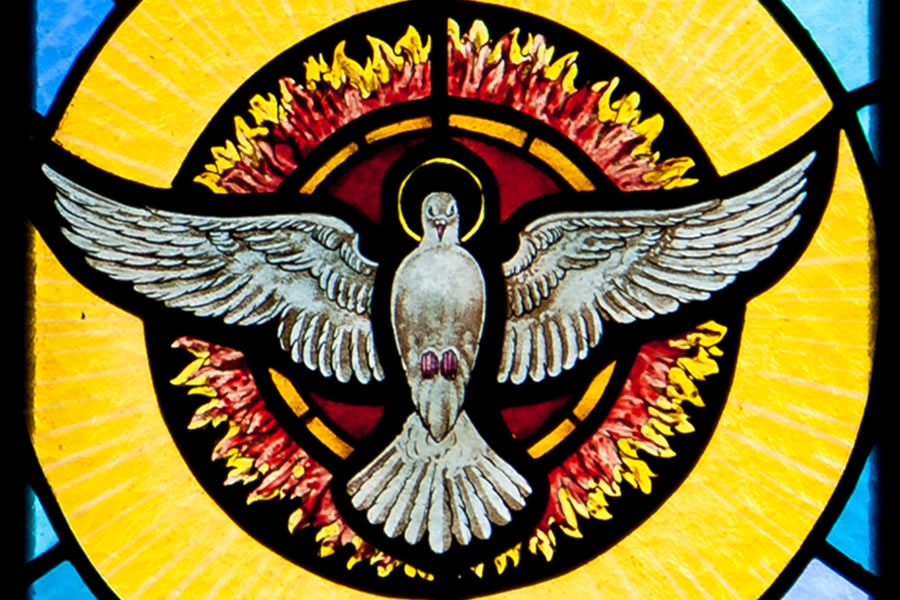
God Is Already Here!
12-16-2018Weekly ReflectionWe Celebrate Worship Resource, Vol. 43, No. 3O Come, O Come, Emmanuel...we sing during Advent, pleading for God to come to us, for “Emmanuel” means “God with us.” But today’s readings deliver a more joyful message: God is already here! “The Lord, your God, is in your midst,” we hear in the first reading, “a mighty savior” (Zephaniah 3:17). “Among you is the great and Holy One of Israel,” we sing in the responsorial psalm (Isaiah 12:6). “The Lord is near,” Paul testifies (Philippians 4:5). In the Gospel, John the Baptist attests that the one to follow is greater than he, for “he will baptize you with the Holy Spirit and fire” (Luke 3:16). As baptized Christians, we have already received the Holy Spirit. God is already with us. So we can already witness to God’s presence, and we do this through our actions. “What should we do?” John is asked three times in the Gospel. He tells inquirers to share with those in need, to treat others fairly, and to be content with what they have. Paul sums it up when he tells the Philippians to make their kindness known to all. Truly, we rejoice today. God is here, brought into our midst in our kindness to our brothers and sisters in need.
What can you do this week to bring God into the world?
READ MORE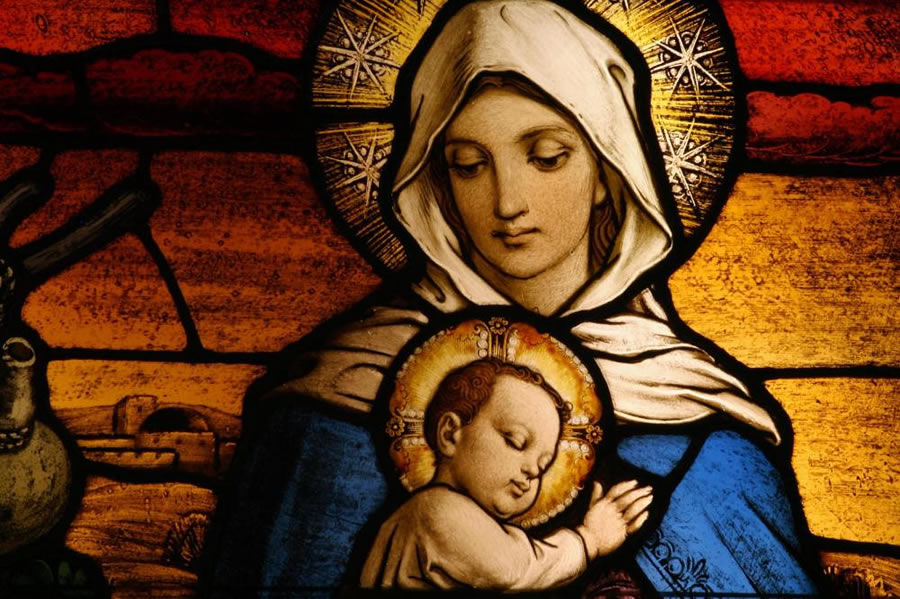
Prepare the Way of the Lord
12-09-2018Weekly ReflectionWe Celebrate Worship Resource, Vol. 43, No. 3We are given Advent each year as a time to prepare. But the readings today remind us that it is also a time of hope and promise. Listen to the first reading: “Jerusalem, take off your robe of mourning and misery; put on the splendor of glory” (Baruch 5:1). Between this sentence and the next, Baruch used “glory” and “splendor” five times. He imagines looking over Jerusalem and seeing mountains laid low, deserts populated with trees, and the faithful streaming in. The start of John the Baptist’s ministry echoes a similar trek: the Exodus from Egypt. John went into the desert where the word of God came to him. Leaving the desert, he crossed over the Jordan River. Crossing over from slavery to freedom in the Exodus was a sign of God’s providence. Crossing over from sin to forgiveness through repentance became a sign of John’s baptism. Advent is the time to prepare. Heed Isaiah’s words, John’s words: “Prepare the way of the Lord, make straight his paths” (Luke 3:4). Let us answer this call, so that with God’s grace we can cross over from desolation to salvation.
How can you make straight the paths for Jesus’ coming?
READ MORE
Prepare Your Heart for Advent
12-02-2018Weekly ReflectionWe Celebrate Worship Resource, Vol. 43, No. 3We tend to think of Advent as a time to prepare for Christ’s coming as a baby in a manger, the “just shoot” foretold by prophets like Jeremiah in the first reading. But today’s Gospel reminds us that it is also time to prepare for a different coming of the Lord: his return at the end of time. Jesus speaks of frightful events that will occur at that time, warning his disciples to be vigilant, not to let “the anxieties of daily life” distract them (Luke 21:34). How appropriately timed, for over the next few weeks we will face countless sources of anxiety as we prepare for Christmas. These anxieties can easily overwhelm us and make it difficult, if not impossible, to prepare for Christ’s coming in any way. Let us heed what Saint Paul wrote when exhorting the Thessalonians to prepare for Christ’s return: “May the Lord make you increase and abound in love for one another and for all” (1 Thessalonians 3:12). If we increase in love for other, we prepare ourselves for Christ’s coming into the world, whether two thousand years ago, at the end of time, or right now, in our hearts.
How can you show your love for others this Advent?
READ MORE